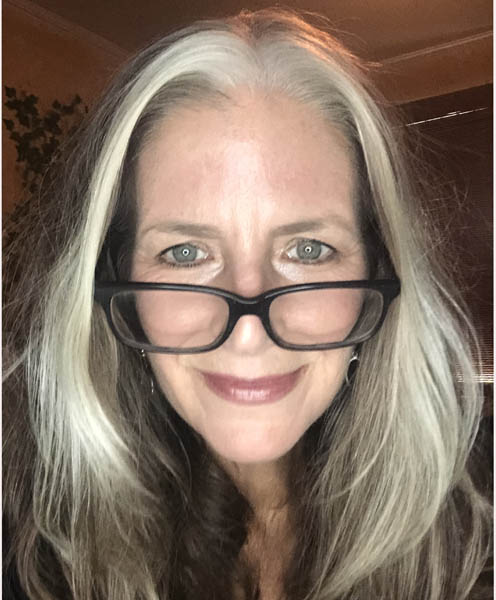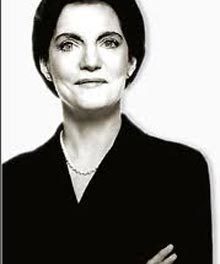I don’t know about y’all, but more and more these days, I feel crushed by the weight of our national divisions. I think that’s because they don’t really feel “national,” do they? (Red states vs. blue states, and all that jazz.) They hit much closer to home. Our national divisions are local. Social. Familial. For some of us, they’re even personal.
Yes, some of us are such oddballs, we feel America’s “national divisions” ripping through our own psyches. Let me explain:
If you’re particularly curious, imaginative, and/or empathetic by nature, you might just find yourself burrowing deeply into “both sides” – or, nowadays all sides – of our roiling political debates, in search of understanding and moral clarity. And when you do that, you might just find yourself divided against . . . yourself. An angel on one shoulder, a devil on the other, and they’re constantly swapping shoulders.
If you make a concerted effort to read, watch, and listen to media from wildly different perspectives, you’ll sometimes find yourself sympathetic to more than one of those perspectives – even contradictory perspectives – and warming up to the folks who express them.
And because our national media, itself, is so divided – different outlets promoting very different narratives, and sometimes even different facts – you’ll find yourself frustrated by all the things most people in your life don’t know about – or don’t understand – simply because they haven’t been well-exposed to this group or that one. Or because they’ve only been exposed to one group’s caricature of the other group, or vice versa.
(Unfortunately, some people now seem to be embracing these caricatures, living down to low expectations in a defiant demonstration of self-fulfilling prophecy.)
And you’ll be struck with sorrow – again and again – by how little grace people extend to those they don’t understand. And it will seem this gracelessness is everywhere, because most people simply don’t burrow deeply in various directions like you do; most people have neither the time nor the inclination. And bless their hearts, they’re the normal ones. You’re the weirdo. This you know.
But it doesn’t stop you from doing what you do, the burrowing deeply, this way and that – it’s your nature, after all – so you bring this frustration and sadness upon yourself, over and over. There’s nobody to blame but you.
And you live in this mental space that’s at once wider and more open to possibility than it might be, but also more crowded and less comfortable than you wish it were. You see so many opportunities for bridge building, cooperation, and reconciliation. . . but you also see them slipping away, faster and farther every day. So you feel discouraged and lonely.
But enough about you.
I read a disturbing piece in the WaPo yesterday, entitled “Trump reaches out to families of US service members killed in Afghanistan.” According to the article, at least six of those 13 grieving families had refused to meet with President Biden at all, taking comfort, instead, in phone calls they’d received from former president Trump.
The passage that kicked me in the gut was this one:
“The past two weeks have put on display not only a nation divided about a 20-year war and its messy withdrawal but also a nation whose politics do not allow it to grieve together.”
A country that can’t grieve together. I’m not sure how much worse it gets than that.
Ten years ago, in a column commemorating the 10th anniversary of 9/11, I wrote:
“In the days and weeks that followed, a lot was written about 9/11, about how it had “changed us” as a country. Many believed it had changed us for the better – had brought us together, healed our divisions, redefined our values, clarified our priorities. Time magazine famously conjectured that The Age of Irony had come to an end…
“The end of the Age of Irony. And we believed it. For a while, anyway. The persistently hip unleashed long-hidden stores of sincerity… the wisecrackers stopped cracking wise… the mockers stopped mocking and the sneerers lost their sneers. Even the late night comics were giving serious, heart-rending monologues. The Age of Irony was over, and we were glad to let it go.”
I went on to acknowledge that the death of irony had been short-lived – along with our healed divisions, redefined values, and clarified priorities. But even in that decade-old column, I sounded like a hopeful woman, taking joy in the little things that make up daily life here in the United States of America: family, friends, church, school, sports, civic associations, etc, etc. The “little pictures,” I called them, that outshine the “big picture” of our political strife and culture wars. As long as we focused on these “little pictures,” I argued, our lives would remain sweet and America, strong.
Ten years later, I’m not so sure. The “big picture” seems to be eclipsing the little pictures in ways I could never have imagined back then.
Who could have foreseen the civilizational tsunami we call “social” media? (Speaking of irony.) In its early days, who could have envisioned the way it would change us, giving voice to our darkest impulses, shedding harsh, unforgiving light on our every petty disagreement? Who could have imagined we’d willingly – and so thoroughly – come to inhabit an alternate reality that operates like a giant high school from hell, where peer pressure urges one to claim a tribe, declare an allegiance, pick a side of the cafeteria and stay there, gossiping loudly and rudely about those on the other side… within their earshot?
Who could have imagined so many people would come to define themselves – their very identities – almost solely according to their political tastes and distastes, and would insist that we all do the same? Who could have guessed we’d spend so much of our valuable time immersed in discussions – often with strangers – of those very topics our mothers warned us to steer clear of in polite company?
As far as I’m concerned, nothing has done more to shred our country than social media. But it’s so integral to most of our lives, I don’t know what’s to be done about it. It’s at once a giant fail and “too big to fail.” And so we shred on.
Many disagree, but I thought George W. Bush gave the speech of his lifetime at Saturday’s 9/11 memorial service.
“In the weeks and months following the 9/11 attacks,” he said, “I was proud to lead an amazing, resilient, united people. When it comes to the unity of America, those days seem distant from our own. A malign force seems at work in our common life that turns every disagreement into an argument, and every argument into a clash of cultures. So much of our politics has become a naked appeal to anger, fear, and resentment. That leaves us worried about our nation and our future together.”
He then reminded us of the people we were in those post-9/11, pre-Twitter days. Brave and compassionate, open-minded and generous, patriotic and united. As he spoke, I found myself weeping. Because I remembered those people. I remembered that country.
“This is not mere nostalgia,” Bush continued. “It is the truest version of ourselves. It is what we have been – and what we can be again.”
But I wonder. If we were faced with another 9/11 – God forbid – could we really be those people again? Or would we immediately revert to our national pastime?
Forget baseball. Today, America’s favorite sport is casting stones.







